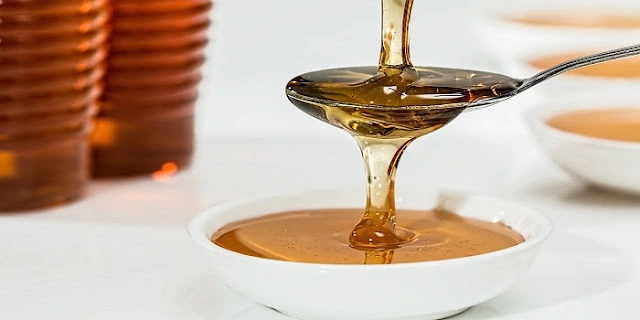10 Amazing Reasons To Have Honey At Home
Honey, often celebrated for its sweetening prowess, conceals a multitude of remarkable uses that extend far beyond enhancing the taste of our culinary delights. In this comprehensive guide, we explore how honey can serve as a natural remedy for various diseases.
The Elixir of Bees: Nature’s Rich Creation
Honey, the golden product of tireless bees collecting pollen, has a legacy steeped in medicinal wisdom. Its unusual chemical composition, marked by low humidity and high acidity levels, grants it the remarkable ability to inhibit the growth of bacteria and microorganisms.
Cough Relief: A Sweet Solution
Research conducted by the Penn State College of Medicine has revealed that buckwheat honey can effectively combat nighttime coughs, improving sleep quality in children. Furthermore, a study involving children with dry coughs found that those who consumed two tablespoons of honey before bedtime experienced better sleep and reduced nocturnal coughing.
Memory Enhancement: A Spoonful of Honey
In a study featured by Reuters, menopausal women who consumed 20 grams of honey daily were subjected to memory tests. The results showed that those who incorporated honey into their daily regimen demonstrated improved memory recall compared to their counterparts who did not.
Wound Healing: Nature’s Antiseptic
Norwegian research highlights the wound-healing potential of specially treated honey, capable of eradicating a wide range of bacteria associated with superficial wounds. Another study underscores honey’s effectiveness in expediting the healing process of skin ulcers and leg wounds when applied directly.
Did You Know?
The Food That Never Spoils
Honey never spoils. Archaeologists have found pots of honey in ancient Egyptian tombs that are over 3,000 years old and still perfectly edible. Its natural composition, low moisture content, and acidity make it an inhospitable environment for bacteria and microorganisms, effectively preserving it indefinitely.
Nutritional Treasure: The Bounty Within Honey
The National Honey Board emphasizes that honey contains essential vitamins and minerals, including niacin, vitamin B2, pentatonic acid, calcium, iron, magnesium, manganese, phosphorus, potassium, and zinc. These nutritional elements make honey a nourishing addition to your diet.
Supporting Health During Chemotherapy
Studies conducted by the Mayo Clinic suggest that honey can help prevent the loss of white blood cells, a common side effect of chemotherapy. Consuming two teaspoons of therapeutic honey during chemotherapy has shown promising results in maintaining white blood cell counts.
Managing Allergies: Honey’s Soothing Touch
Although not scientifically proven, many individuals find honey to be an effective remedy for temporary allergies. Its soothing properties can help alleviate symptoms of coughs and sore throats associated with allergies.
Combatting Antibiotic-Resistant Bacteria
Clinical studies reveal that medicinal honey possesses the ability to combat antibiotic-resistant bacteria, including E. coli, salmonella, and Staphylococcus aureus, making it a valuable natural antimicrobial agent.
Boosting Metabolism and Energy
Rather than resorting to energy drinks, consider honey as a natural pre-exercise or post-exercise option. Dissolve a teaspoon of honey in your workout water or consume honey bars to enhance performance and support muscle recovery.
Did You Know?
A single honey bee may produce only about 1/12th of a teaspoon of honey in its lifetime. Yet, collectively, the tireless efforts of a hive of bees can yield up to 100 pounds (45 kilograms) of honey in a year.
Banishing Dandruff and Scalp Woes
A study involving individuals suffering from dermatitis and dandruff demonstrated significant improvements in scalp health after applying a diluted honey and warm water mixture. This remedy proved effective in reducing hair loss, with patients experiencing long-lasting results.
Conclusion: The Sweet Rewards of Responsible Honey Use
Honey, with its golden hue and delectable flavor, offers a treasure trove of benefits when used thoughtfully. It’s a potent natural remedy and a source of nourishment, making it a valuable addition to a healthy lifestyle. However, it’s important to remember that honey, while healthy, is calorie-dense (each tablespoon contains 64 calories) and should not be given to children under 12 months due to potential infant botulism risks.

